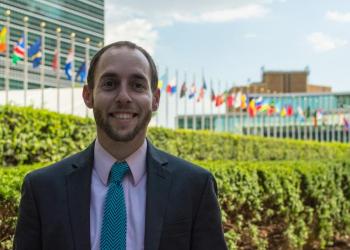Want a UN Fit for Purpose? Focus on the Process of Policy Making
Discussions on making the UN “fit for purpose” often boil down to a question of policy – finding “good” policies and avoiding or replacing “bad” policies. But an effective policy in one place may be ineffective elsewhere.
What is missing from the conversation, it becomes clear, is an analysis of the process by which policy is determined, implemented, and modified.
This is something that, deep down, we all know already. A UN-sponsored meeting I recently attended, for example, presented a case study in which a policy was enacted in a certain country and promptly faltered. Its aims were commendable, but the context and norms of the population affected were not suited to its requirements. One of the participants in the room, however, speculated that the program would have flourished in his country, where there was widespread interest in the issues it had sought to address.
So, is the policy effective or not? The answer, of course, is “it depends,” for the impact of policies implemented without regard to differing circumstances is fundamentally unpredictable. Some will work; some won’t.
But clear as this is, our answer cannot be a blanket rejection of “one-size-fits-all,” for some dynamics are dependable and reliable across differing situations. And we can learn from one another’s experiences. We are not completely on our own.
Thriving initiatives, for example, almost invariably have widespread buy-in from those affected, often by welcoming participation and genuinely incorporating a variety of perspectives in the formation of the policy guiding them. They respond with flexibility to new information and adapt to evolving circumstances. Their aims are effectively communicated and widely understood.
Strengths such as these stem from the process by which policies are formulated – the “process of policy” as some have called it – as much as the content of the policies themselves. And it is here that the UN needs to focus, if solutions are to be found for problems that span a nearly limitless variety of local realities, constraints, and opportunities. Perhaps there is a “one-size-fits-all” solution, at least in terms of process.
The UN therefore would do well to place less emphasis on finding the “right” policy and focus more on learning about the processes by which good policies are identified and implemented. Steps in this direction might include:
- Focus commissions and expert group meetings on process as much as policy. In addition to detailing the policy that achieved results, tell the story behind the policy itself – how it was developed, how it evolved in the formulation process, how objections were resolved, how it was communicated.
- Value qualitative information as much quantities. Numerical data is important, but 50 people contributing ideas and asking questions is much different than 50 people who attend a meeting as bystanders. Qualitative analysis helps us to think in terms of lessons learned. Rather than blanket statements such as “this sequence of priorities works” or “this sequence doesn't work,” we might say “it worked here because…” or “it didn’t work there because…” and begin extracting insights and make comparisons from those experiences.
- Seek process-related goals and indicators. Human beings value and prioritize what they measure. Building processes that lead to consistently effective policy therefore requires systematic measurement and refinement. Excellence in the means and mechanisms by which policy is developed isn’t the icing on the cake; it is the cake. And to overlook its requirements would not be prudent.
- Recast the role of civil society. Over the past decades civil society has transitioned from being primarily watchdogs and protestors, to increasingly proposing answers and taking action. This shift is important and one I hope continues. For the more useful civil society demonstrates itself to be, the more it will be turned to as a worthy partner in any and all processes. More voices are central to every stage of policy development: reading the reality, consulting on policy, implementing what is agreed to, and modifying as necessary.
– Daniel Perell, representative to the United Nations of the Baha’i International Community
